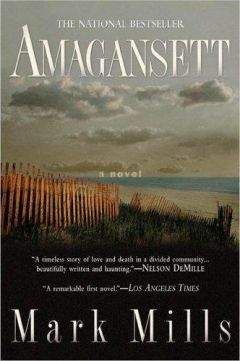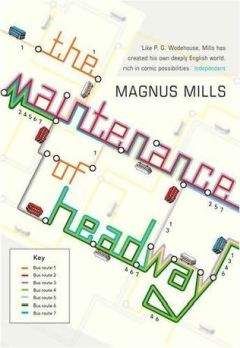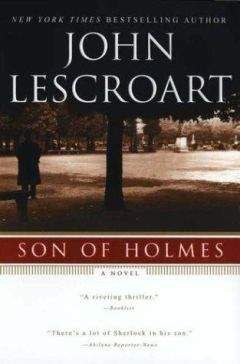Mark Mills - The Information Officer
“Oh God …”
“I like it,” she said, holding him tighter to prove her point.
“The first thing I’m going to do when I get home is have a bath. Not just any bath. The bath to end all baths. I’m going to sit there and soak for hours. With a good book. And a big glass of pure malt whisky. And I’ll use my foot to top it up with piping hot water from time to time.”
“Your foot?”
“On the tap.”
“Oh.”
“You’ve never done that?” he asked.
“No.”
“It’s not so hard. The hardest part is using your other foot to remove the plug so the tepid water can drain away.”
“I can see you,” she said.
“Can you?”
“Like I was standing there.”
Max hesitated. “You can come in, if you want.”
“You’ll have to put your book down.”
“As long as I don’t have to let go of the whisky.”
“Okay,” she conceded with a small smile. “Now kiss me.”
It was a long and languorous kiss, neither of them wishing it to end.
It was growing dark, and Busuttil had spent more than enough time with the Cassars. He knew pretty much everything there was to know about their dead daughter—how as a young girl Carmela had hated having her hair braided for church; how she had loved having her back stroked in the bath; how she had won the art prize at school with her drawing of the Tarxien Temples. She had always been strong-willed, good with animals, tough on bullies, and indifferent to boys.
Josef searched for lies in their words, but was left with a picture of a model daughter, proud, principled, and kindhearted. So eager were they to bring her back to life with their reminiscences that only once did they ask him why he had come visiting. He palmed them off with the usual line about it being standard police procedure.
Carmela had been laid to rest in Santa Maria Addolorata Cemetery just a few days before, and before the light faded, her father was able to point out the spot from the house—a quiet corner near the western wall that apparently caught the early-morning sun. Carmela had always said that she wanted to be buried there.
Well, now she was. And only a stone’s throw away, Josef suspected, from the place where she’d been abducted. He knew from her parents the route she’d taken home from work every night, and he had played it through in his mind, walking the streets with her back from the Blue Parrot: Valetta, Floriana, down past the Porte des Bombes to Marsa, skirting the end of Grand Harbour, leaving the racetrack on her right. Until this point she’d have been on main roads. Better to wait till she took the shortcut, up the valley and through Santa Maria Addolorata Cemetery. That’s what he would have done. That’s what anyone who knew her movements would have done—waited till she was on the home stretch, well off the beaten track. Josef knew it in his bones, just as he knew that out there somewhere, someone was watching and waiting.
Who they were, and just where they’d picked up his trail, he didn’t know. But he would know soon enough. That’s why he had lingered so long with the Cassars, allowing the sun to set and darkness to descend. The night was his time, his friend. It was when he had always done his best work, even as a student at the university. The Cassars were keen that he stay and eat with them, but he made his excuses and left.
There was a waning moon overhead, only half-full, yet bright enough to illuminate his path down the hill. It was ideal. Any less light, and it would have been too dark to see what he was doing; any more, and the hunter might have realized that he had become the hunted.
The iron gate set in the south wall of the cemetery offered an added bonus. Its dry and dusty hinges groaned in protest as Josef slipped the latch and eased it open. After closing it behind him, he quickened his pace, stepping lightly down the central avenue for fifty yards or so before breaking left, weaving through the gravestones, and taking up a position behind a run of large family tombs.
There he waited and listened, filtering out the sounds of the night. He started to feel foolish after several minutes had passed, and was about to break cover when he heard it, buried away in the drone of cicadas: the sound of the gate being opened.
His hand went instinctively to his waist, closing around the stock of his pistol.
From where he was hidden it was hard to judge the height of the man because the avenue was shaded from the moonlight by a screen of cypress trees. From the sound of his footfalls, he was moving stealthily but with purpose, looking to narrow the lead.
Josef kicked off his shoes and set off along the narrow pathway behind him. It ran parallel to the main avenue, and he hurried in a low crouch to get ahead of the man. He was familiar enough with the cemetery to know that the main avenue divided at the back of the cathedral, skirting it on both sides. It was as good a spot as any for Josef to make his move.
He was in position, hunched behind a gravestone, when the man reached the junction and stopped. If he headed left, Josef would strike, leaping from the shadows and delivering a quick pistol whip. He couldn’t afford to take any chances. It was a case of act first, ask questions later. If the man gave him the slip, there would be little hope of finding him in the labyrinth of tombs.
The man set off again, his footsteps receding. Josef peered out from his hiding place in time to see the shadowy figure disappear from view along the right-hand fork. He gave a silent curse at the prospect of yet more running, then padded off around the other side of the cathedral.
He was heaving for breath by the time he reached the point where the two pathways converged once more. It was a darkened spot, perfect for his purposes: a circular patch of ground fringed with trees at the foot of the low plateau on which the cathedral was perched. A double stone staircase set in a sheer bank of rock marked the beginning of the long climb up to the main entrance of the building, and it was here, in the deep shadows to one side of the staircase, that he placed himself.
The blood was beating in his ears after his exertions, and he strained to hear the man approaching. When he did, he sneaked a quick look. The man was no more than twenty yards away and approaching at a brisk rate down the pathway. Josef’s fingers tightened around the pistol. Go for the side of the head and hit him again if he tries to get up….
His muscles were tensed, poised to spring into action. If they hadn’t been, he might have reacted to the sound more quickly. It came from behind him, and by the time he had registered it, by the time he had turned, it was too late.
His last impression before his world went black was of a tall figure looming over him. His last thought was of the air-raid shelter and the young woman whose name he now knew.
“Anyone for seconds?” asked Rosamund.
“That’s a question I haven’t heard in a while,” said Max.
Lionel gave a hearty laugh. “Too right, old man.”
“A bit more of Hardy, if there’s any going,” said Freddie.
“Freddie!” chided Mitzi.
“Well, he’s more tender than Laurel.”
“Stop it!”
“She,” corrected Rosamund. “Hardy was a girl.”
“Really? How can you tell?” asked Lionel.
Mitzi rolled her eyes. “The plumage, for one.”
“And Hardy always peed sitting down.”
This earned Max a big laugh around the table. Lionel even slapped his thigh. Mitzi took the opportunity to fire Max a look that only he could interpret. It said, I know what you’re doing, and I don’t care.
But she did care, which was why he intended to carry on doing it.
“Shouldn’t we hold the rest back for the others?” he suggested.
“They don’t deserve it,” said Rosamund.
Elliott had failed to show, and Hugh was supposed to have been back from Rabat almost two hours before, having scooped up Ralph in Mdina en route.
“I’m sure it’s not their fault they’re late.”
“Oh, it’s never Hugh’s fault.”
This was uncharacteristic of Rosamund, who generally liked to present a united front. Realizing her transgression, she tried to make light of it.
“I keep a list of Hugh’s excuses. He must too, because he’s never used the same one twice.”
His excuse, when he showed up a short while later with Ralph, was difficult to fault. He’d spent the afternoon touring gun emplacements ahead of the big day, geeing up his men. The whole thing had overrun because of the afternoon raids.
“You could have phoned.”
“I tried, my darling. The lines were down.”
“Not when I called HQ and they told me they had no idea where you were.”
“That’s as it should be. We’d all be in terrible trouble if HQ actually knew what was going on.”
The laughter put an end to the matter, and attention shifted back to the guests of honor. Freddie proposed a toast to Lionel and Mitzi, following it up with a small speech he’d prepared. It was a touching tribute, heavy on the humor, which brought some tears from Mitzi. Even Lionel’s eyes misted over a little.
His response to Freddie’s kind words was a predictable mix of awkward affability and pomposity: friendships smelted in the furnace of battle … memories to last a lifetime … the eternal struggle of good versus evil … not “goodbye” so much as “au revoir.” He made no mention of Mitzi and the fact that she had chosen to stay at his side throughout it all, whereas most of the wives had long since bolted for home. Max knew that he should keep his mouth shut, that to speak would only draw attention to Lionel’s oversight, but when the smattering of applause had died down, he raised his glass.
“To Mitzi and all her good work at the Standing Committee of Adjustment.”
Mitzi tilted her head at him in gratitude.
“Hear, hear,” said Rosamund emphatically. “If it wasn’t for women like you, women like me wouldn’t get to sit around all day playing gin rummy and moaning about the scarcity of zip fasteners.”
The final toast of the evening was to Ralph, and in many ways it was the most poignant. None of them around the table was facing a trial like his, and they all knew it was one he might not survive. The next morning, when the replacement Spitfires flew in, he would be waiting at Ta’ Qali, ready to take to the air in one of the new machines. No one doubted that the ensuing air battle would be the fiercest yet, and Ralph was going to be in the thick of it.
“Are you sure you remember how to fly the bloody things?” asked Freddie.
“Stick, rudder pedals, firing button—how hard can it be?” scoffed Max.
Lionel gave a loud snort. “Well, I must say, that’s pretty rich coming from you, old man.”
“He was joking,” Mitzi sighed.
“Oh.”
When they all moved outside for coffee, Max and Freddie snatched a moment alone on the back terrace. It was the first chance they’d had to talk in private, and Max filled him in on Busuttil’s discoveries, including the name he’d turned up.
“Ken?”
“I checked with Tommy Ravilious at the sub base. Nothing.”
“An assumed name?”
“Maybe. Busuttil’s chasing it down.”
“I hope so. Mitzi says the Upstanding’s due to leave on Sunday.”
“I thought it was Monday.”
“It’s been brought forward a day. They want her gone before things really heat up around here.”
“Christ.”
Only one more day for Busuttil to crack it. He wasn’t going to appreciate this new development when Max saw him later.
Freddie wanted to know if there was anything he could do to help. He had just been assigned to the naval hospital at Bighi, on the Grand Harbour side of Valetta, but was more than happy to shirk his duties if the situation called for it.
“You can’t do that.”
“It’s not like I’m stuck out at Mtarfa anymore. I’m right here on the doorstep and ready to do whatever—hang the consequences.”
“I’ll mention it to Busuttil, see what he says.”
Freddie glanced toward the house. Lionel was still seated at the dining table, pontificating to Hugh and Ralph about something or other.
“Have you ever wondered if it’s him?”
“Lionel? For all of five seconds. Why?”
“I hadn’t noticed before tonight…. He’s left-handed.”
As if on cue, Lionel raised his wineglass to his lips with his left hand.
Max didn’t have a chance to respond.
“What are you two looking so furtive about?”
The voice came from high above them. It was Mitzi, peering down from the crow’s nest, barely discernible in the darkness.
“What are you doing up there?” called Freddie.
“Having a last look.”
“Don’t pretend you’ll miss it.”
“Oh, but I shall.”
“And us?”
“I’ve already packed some extra hankies.”
“You’ll latch on to another pair of handsome, witty young men within a week of landing in Alexandria.”
“Is that what I did: latch on to you?”
“Brazenly. It was almost embarrassing, wasn’t it, Max?”
“Absolutely. I still shudder when I think about it.”
Freddie laughed. Mitzi didn’t.
Max was still thinking about Lionel.
IT WAS PERFECT, MAYBE MORE PERFECT THAN IT HAD EVER been in the past.
Preparations had been made, contingencies planned for, but it wasn’t the logistics that accounted for his deep sense of satisfaction. That came from the beauty of the stratagem, its plain and simple trigonometry.
There had been moments when he had feared he’d taken on too much. He could admit to that now, now that he was so close and could see it all unfolding before his eyes.
He loved this moment, and he tried to record his almost dizzying sense of anticipation.
Reading back the words, he realized that some things lay well beyond the scope of language.
DAY EIGHT
MAX WOKE WITH A START, UNSURE WHY AT FIRST, THE reason slowly dawning on him.
He struggled to read the luminous dial of his wristwatch—just after five—which meant Busuttil was running more than seven hours late.
Max had been the first to leave the dinner, racing home to make the ten o’clock appointment and managing to stay awake until after midnight before nodding off. He had left the door downstairs unlocked and the one to his flat ajar. It still was.
Maybe Busuttil had been caught in one of the night raids, injured even. It seemed unlikely. The 88s had concentrated all their efforts on the airfields, wave after wave, suggesting that Kesselring had full knowledge of the fly-in and was doing everything in his power to hamper the operation, chewing up the runways and scattering what remained of them with delayed-action bombs.
By seven o’clock, there was still no sign of the detective.
Max left the flat, pinning a note to the door that said he’d gone to work, and giving the phone number. Outside, he ran an apologetic hand over the motorcycle. He had thrashed her on the way home, hurling her around the looping bends of Marsamxett Harbour. He gave her a little shake to check the contents of the tank. Running low on gasoline yet again, but the coil of tubing was tucked away under the seat, ready for some surreptitious siphoning. She started the first time.




